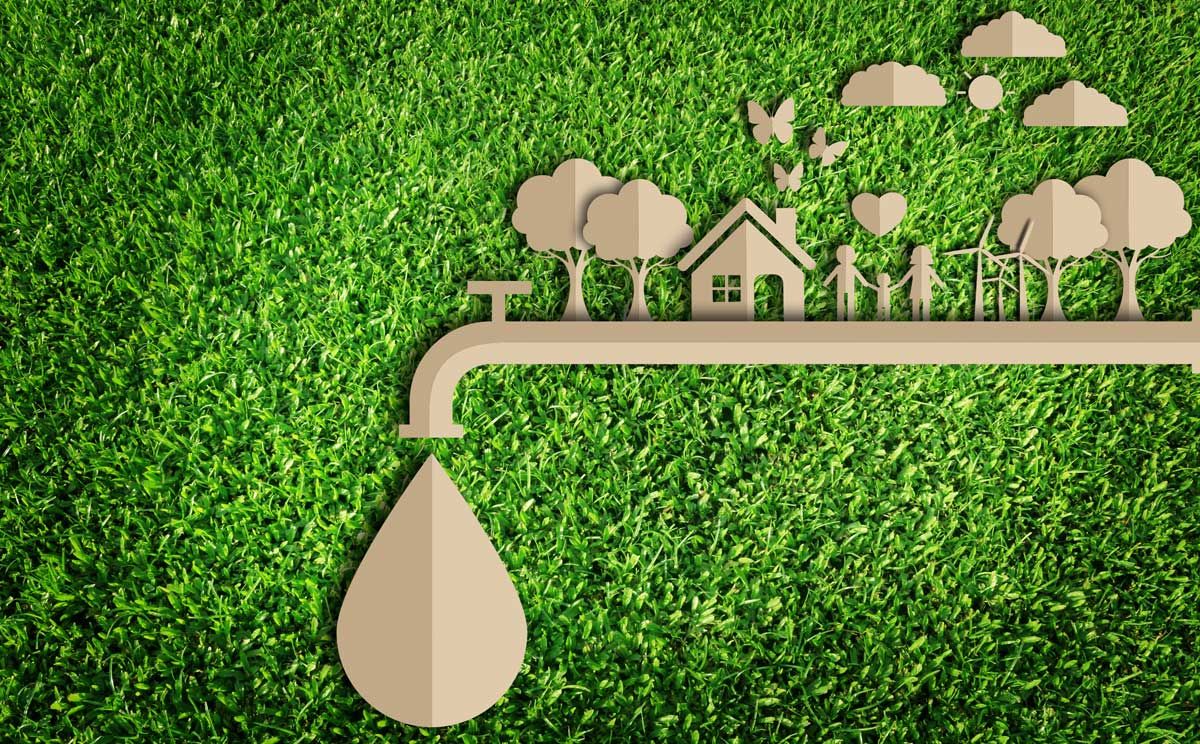Tips About Water Conservation
The best way by far to lower the planet's need for water is water conservation. Using less water has a chain reaction effect by using less energy for heating water and treating sewage. Using less water, especially hot water, also saves electricity which in turn saves water because the production of electricity itself uses a good deal of water.

Tips About Water Conservation
Why Should I Conserve Water?
The best way by far to lower the planet's need for water is water conservation. Using less water has a chain reaction effect by using less energy for heating water and treating sewage. Using less water, especially hot water, also saves electricity which in turn saves water because the production of electricity itself uses a good deal of water.
What Can You Do About Water Conservation?
- Easy ways to conserve water
- A more efficient bathroom
- Kitchen and laundry room
- Conserve around your home
Easy ways to conserve water:
- One way to tell if you lawn needs to be watered is to press your hand on the grass and if it pops back up when you lift your hand then it doesn't need to be watered. You can also water with a hose instead of a sprinkler to save water.
- You can save more than 15 gallons of water a day by fixing sinks that leak.
- Use a bucket of water when you wash your car instead of running the hose the entire time.
- Use a shower head designed to conserve water. These shower heads are inexpensive and will save a considerable amount of water.
- Don't run you washing machine or dishwasher unless you have a full load.
- Be more efficient when showering try to cut your shower time by 1 or 2 mintues.
- Catch water in a container that typically goes down the drain while you're waiting for it to heat and use it to water your plants.
A More Efficient Bathroom:
- Put a sealable plastic bag with a weight in it in you toilet tank. This will allow your toilet to flush with less water.
- Check for a leaky toilet tank by putting dye in the tank and seeing if you can see the dye leak into the bowl before you flush.
- Turn the water off when you brush your teeth.
Kitchen and laundry room:
- Don't leave the water running while if you're washing dishes by hand. Instead just turn it on when you need to rinse.
- Use less detergant when you wash dishes by hand. This will result in less water being needed to rinse.
- Refrigerate a pitcher of water for drinking so you won't have to run the water to get it cold.
- Throw food scraps in the garbage instead of using the garbage disposal.
Conserve around your home:
- Put some sort of mulch around the base of plants and trees. This will slow the rate of evaporation of ground water arond the plant or tree.
- Don't water your lawn or plants when it's raining or on cool days
- Set lawn mower blades one notch higher. Longer grass means less evaporation. Saves 500 to 1,500 gallons each month.
- Have an evaporative air conditioner? Direct the water drain line to a flower bed, tree base, or lawn.
- Drive your car onto a lawn to wash it. Rinse water can help water the grass.
- Tell your children not to play with the garden hose. Saves 10 gallons a minute.
- If you allow your children to play in the sprinklers, make sure it's only when you're watering the yard--if it's not too cool at that time of day.
- Xeriscape--replace your lawn and high-water-using trees and plants with less thirsty ones. But do this only in wet years. Even drought resistant plantings take extra water to get them going. That'll save 750 to 1,500 gallons a month.
- When taking your car to a car wash--a good idea for saving water--be sure it's one of the many that recycles its wash water.
- Dispose of hazardous materials properly! One quart of oil can contaminate 250,000 gallons of water, effectively eliminating that much water from our water supply. Contact your city or county for proper waste disposal options. And don't flush prescription medications!
-
Popular Searches
Popular searches on RecyclingCenters.org
-
History of Recycling
Recycling
Recycling is a key component of modern waste reduction and is the third component of the "Reduce, Reuse, and Recycle" waste hierarchy.
-
How and Why would I Compost
You might want to compost if you need fertilizer for your garden or landscaping.
You might want to compost if you need fertilizer for your garden or landscaping. Compost is just as good or better than commericial fertilizers. It also doesn't cost anything to create compost because it's made with the organic waste you produce.
-
Recycling Techniques
Ever wonder how different types of materials get recycled? Check out this list of commonly recycled materials.